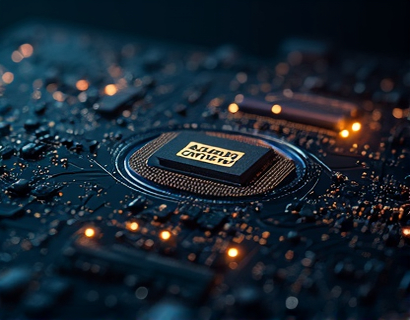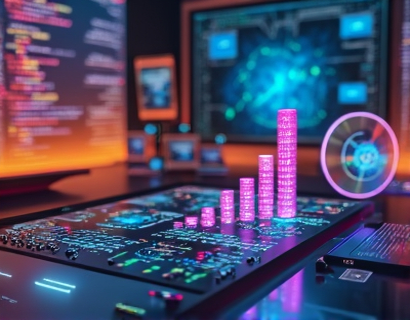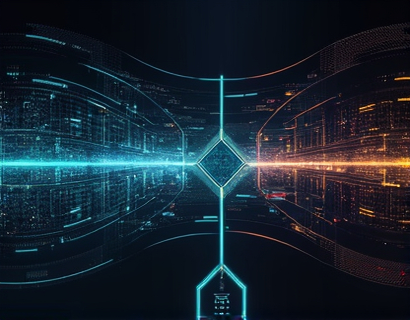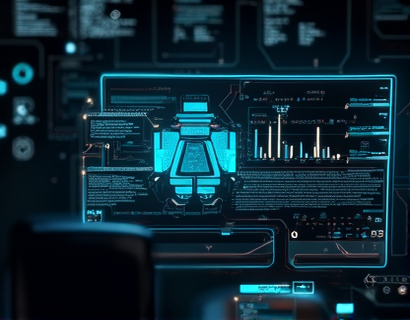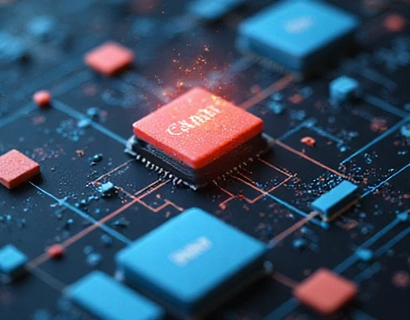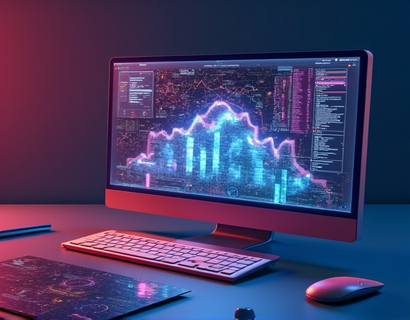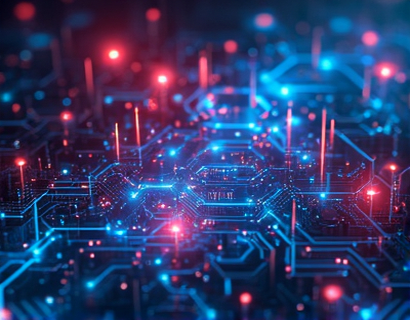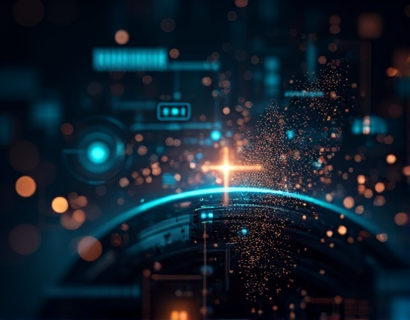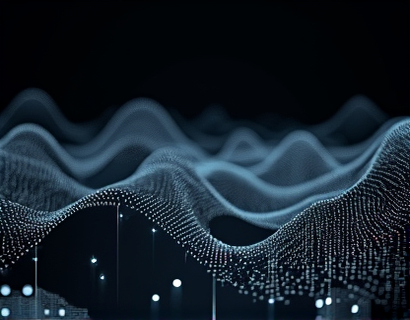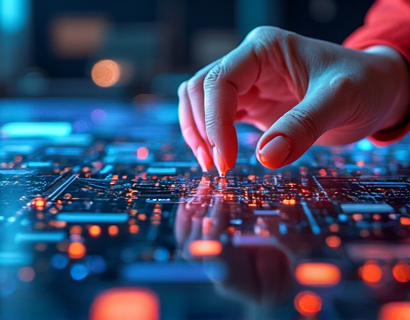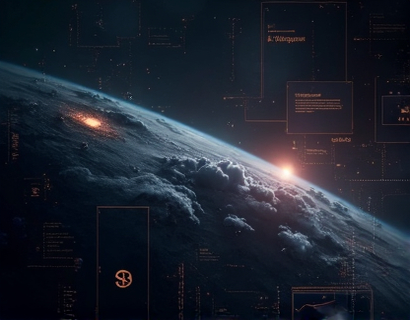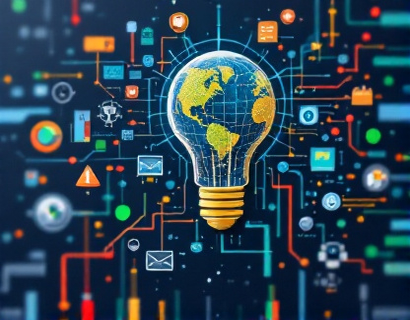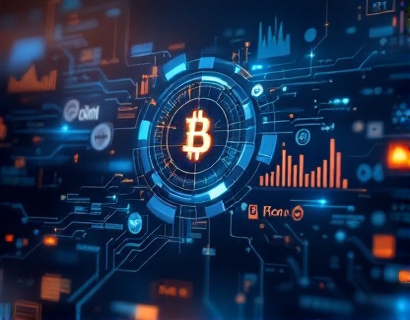Decentralized Productivity: Harnessing AI and Crypto for Next-Gen Workflow Innovation
The integration of artificial intelligence (AI) and cryptocurrency is ushering in a new era of productivity and workflow innovation. This transformation is not just about adopting new technologies but about reimagining how we collaborate, manage tasks, and enhance efficiency in both personal and professional settings. Decentralized applications (dApps) and AI tools are at the forefront of this revolution, offering unprecedented opportunities to streamline workflows and elevate user experiences.
Decentralized applications, built on blockchain technology, operate without a central authority or intermediary. This decentralized nature ensures transparency, security, and resilience, making them ideal for creating trustless environments where users can interact directly with each other and with applications. When combined with AI, these dApps can automate complex tasks, provide intelligent insights, and optimize processes in ways that were previously unimaginable.
Understanding Decentralized Applications
Decentralized applications are built on blockchain networks, which are distributed ledgers maintained by a network of nodes. This architecture eliminates single points of failure and reduces the risk of censorship or manipulation. Each transaction or interaction within a dApp is recorded on the blockchain, ensuring immutability and traceability. This level of transparency is crucial for building trust among users, especially in industries where data integrity is paramount.
The development of dApps leverages smart contracts, self-executing contracts with the terms of the agreement directly written into code. Smart contracts automate and enforce the rules of an application, reducing the need for intermediaries and lowering transaction costs. This automation not only speeds up processes but also minimizes human error, leading to higher efficiency and reliability.
AI in Decentralized Workflows
AI plays a pivotal role in enhancing the capabilities of decentralized applications. Machine learning algorithms can analyze vast amounts of data to identify patterns, make predictions, and provide actionable insights. In a decentralized context, AI can be deployed to manage and optimize various aspects of a dApp, from user onboarding to content moderation and personalized recommendations.
For instance, AI-driven chatbots can provide 24/7 customer support within a dApp, handling queries and resolving issues in real-time. These chatbots can be powered by natural language processing (NLP) techniques, enabling them to understand and respond to user inputs accurately. This not only improves user experience but also reduces the workload on human support teams.
Enhancing Productivity with AI and Crypto
The synergy between AI and cryptocurrency creates a powerful toolkit for enhancing productivity. By leveraging blockchain's security and AI's computational prowess, professionals can automate repetitive tasks, gain valuable insights, and focus on higher-value activities. Here are some key areas where this synergy is making a significant impact:
- Automated Workflows: AI can automate routine tasks such as data entry, report generation, and task scheduling. Smart contracts ensure these tasks are executed reliably and transparently, freeing up time for more strategic work.
- Intelligent Decision Making: AI algorithms can analyze market trends, user behavior, and other relevant data to provide predictive insights. This helps professionals make informed decisions quickly, reducing the time spent on analysis and increasing the speed of execution.
- Enhanced Collaboration: Decentralized platforms facilitate seamless collaboration among distributed teams. AI can manage communication flows, prioritize tasks, and ensure that all team members have access to the most up-to-date information.
- Security and Trust: Blockchain's inherent security features protect sensitive data and ensure that transactions are tamper-proof. AI can further enhance security by detecting and mitigating potential threats in real-time.
Use Cases in Various Industries
The potential applications of AI and decentralized technologies are vast and varied, spanning multiple industries. Here are some notable use cases:
Finance
In the financial sector, decentralized finance (DeFi) platforms are redefining traditional banking and investment processes. AI-driven algorithms can optimize trading strategies, manage risk, and provide personalized financial advice. Smart contracts ensure that transactions are executed automatically and securely, reducing the need for intermediaries and lowering costs.
Supply Chain Management
Supply chain operations can benefit greatly from the transparency and traceability offered by blockchain. AI can track products from origin to destination, ensuring authenticity and quality. This not only enhances efficiency but also builds trust among stakeholders. For example, AI-powered systems can predict demand, optimize inventory levels, and automate logistics, reducing delays and costs.
Healthcare
In healthcare, decentralized platforms can securely store and manage patient data, ensuring privacy and compliance with regulations. AI can analyze medical records to identify patterns, assist in diagnosis, and recommend personalized treatment plans. Smart contracts can automate billing and insurance claims, streamlining administrative processes and reducing errors.
Content Creation and Distribution
For content creators, decentralized platforms offer a fair and transparent way to monetize their work. AI can help in content curation, recommendation, and monetization strategies. Smart contracts ensure that creators receive fair compensation for their work, eliminating the middlemen and ensuring transparency in revenue distribution.
Challenges and Considerations
While the potential of AI and decentralized technologies is immense, there are several challenges and considerations to keep in mind:
Scalability
Blockchain networks, especially those using proof-of-work consensus mechanisms, can face scalability issues. High transaction fees and slow processing times can hinder widespread adoption. However, the development of layer 2 solutions and more efficient consensus algorithms is addressing these concerns.
Regulatory Environment
The regulatory landscape for cryptocurrency and blockchain technologies is still evolving. Compliance with local and international regulations is crucial for the adoption of decentralized applications. Staying informed about regulatory changes and ensuring compliance can help mitigate legal risks.
User Education
Many users are still unfamiliar with blockchain and AI technologies. Educating the audience about the benefits and functionalities of decentralized applications is essential for driving adoption. Providing user-friendly interfaces and clear documentation can help bridge the knowledge gap.
Future Outlook
The future of decentralized productivity is bright, with ongoing advancements in AI and blockchain technology paving the way for even more innovative solutions. As these technologies mature, we can expect to see more seamless integration, improved user experiences, and broader adoption across various industries. The key will be to continue fostering collaboration between developers, businesses, and regulators to create an ecosystem that supports growth and innovation.
In conclusion, the combination of AI and decentralized technologies is revolutionizing workflows and productivity. By automating tasks, providing intelligent insights, and ensuring security and transparency, these technologies are empowering professionals to achieve more with less effort. Embracing this transformation can lead to significant improvements in efficiency, creativity, and overall success in the digital age.



